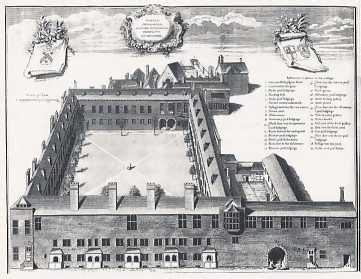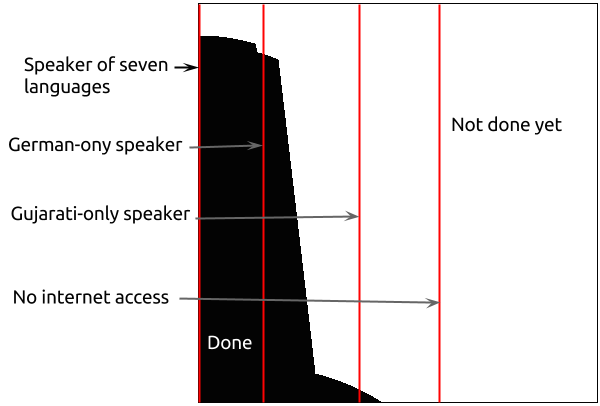I missed this weeks session of the Educational Repair reading group as I was participating in the World Congress of Perambulatory Sutures. First stop was Class Wargames in the Northlands in Huddersfield, followed by Walking Inside Out, in Leeds. Then down to Wortley Hall for the WHERE NOW? – a post-election review organised by the Raymond Williams Foundation. I was drawn to this as regards the focus on Adult Education. However, what I found most interesting was a session dealing with Williams’ Keywords. I checked the Keywords Project website: “a collaborative research initiative investigating ‘key’ words prominently used but also contested in social debate in English.”
The word which seemed most relevant to the reading group was “west“, I kind of felt reassured that I did not really understand what people mean when they use this word. Just as a form of words, racialised as black has gained a certain currency, I feel maybe the time is approaching when the even more long-winded circumlocution “psychogeographised as western”. I found the quote from the Royalist courtier, Richard Fanshawe’s translation of the Lusiad (1652) most instructive:
“But now he fears that Glorie’s neer it’s West, in the black Water of Oblivion”
This image of the “west” as dissolution was published just as Oliver Cromwell, Lord Protector of England, was implementing his “Western Design” – plan to attack Spain via its colonies in the Americas and the occasion where England’s Republican ruler seized Jamaica from the Spanish. Fanshawe had been involved in an unsuccessful attempt to gain Spanish support for Charles I.
At a second hand bookstall at Wortley Hall I was able to get hold of Christopher Hill‘s Intellectual Origins of the English Revolution, which I read on the train back to London. In describing the intellectual turmoil of the seventeenth century, Hill focuses on three people: Sir Walter Ralegh (1554-1618), Francis Bacon and Edward Coke. All three were involved in the genesis of English imperialism:

Ralegh was a hands-on colonialist with profound anti-Spanish views: he had participated in the murder of Spanish and other Catholic prisoners after the Siege of Smerwick (1580). His role as pioneer of the English invasion of North America combined a search for great wealth, primarily gold, and the goal of curbing the growing power of the Spanish Empire, which at the time was described as “the empire on which the sun never sets“. This was term used by Thomas Gage (c. 1597 – 1656). In his treatise A New Survey of the West Indies or The English American his Travel by Sea and Land (1655). At the time of writing, Cromwell’s role as Lord Protector was a novelty, a form of words which hide Cromwell’s assumption of dictatorial powers. Indeed, even an apologist for British Imperialism like the American educationalist Frank Strong (1899) wrote admiringly of Cromwell using precisely these dictatorial powers to launch his Western Design, whereby England seized the Spanish colony of Jamaica. In his introduction Gage suggests that the “Indians” (i.e. Native Americans) had as much right to seize Spain by Right of Discovery as the Spanish did in seizing vast tracts of land in the Americas. In the context of inter-imperialist struggles in Europe, Gage suggests that the English can offer to “protect” the Indians from the Spanish, and from this we can derive the rationale not merely for the protectorates of the seventeenth century, but the Eurocentric ideology which was evinced by the Berlin Conference of 1884–85 through to twenty-first century developmentism.
Francis Bacon himself is most remembered for his role as an advocate of empiricism in science. Hill places this in a social context: “Bacon’s scientific method is the trial and error of the craftsman raised to a principle.” Hill regards Bacon’s influence as important not in supplying political dogmas, but through offering a guide to action. This can be seen in the way Bacon’s ideas, particularly as regards The New Atlantis (1627), a connection which Richard Chartres, the current Bishop of London, underlined when he used his position as Gresham College Professor of Divinity to deliver three lectures (May 1992) depicting Gresham College as a ‘Magic Island’ based on Bacon’s conception of New Atlantis.

Hill’s book looks at how changes in the academic curriculum, arose from Gresham College and the mechanical folk who attended the lectures there. Gresham College was set up by Thomas Gresham, and funded by the Royal Exchange, another institution founded by Gresham. It’s role was to provide practical adult education to the artisans and seamen of London. This was the rising bourgeois class which would implement the empire. Hill argues that the “Greshamisation” of the Oxford University took place through the English Revolution, which in many ways implemented parallel reforms in society as a whole, comparable to the supercession of the scholasticist curriculum.
Edward Coke deserves special mention as he used his privilege as a judge to introduce a religious distinction to allow for enslavement of non-Christians to enter English Law. I have dealt with this at greater length elsewhere. (Tompsett 2000). Hill looks to him for his reorganisation of English Law.
I think it is important that we do not see the “White Curriculum” as a natural phenomenon that appeared without agency in European and American learning institutions. It came about as a result of deliberate actions and, indeed, social struggles.
One last point I found in a footnote in Hill’s book: The Moravian educationalist, Comenius, did express concern about the imperialism which the new teaching was unleashing: ‘these voyages of Europeans to foreign lands have brought evil to Europeans no less than to those people from which we obtain wordly goods” (Angelus Pacis), “We are all fellow citizens of one world, all of one blood, all of us human beings. (Panegersis) (Hill 1965) Comenius played a key role in the educational revolution in England in the seventeenth century. However, regardless of the utopianism and libertarianism which accompanied this revolution, English society was to evolve as the central element of the British Empire, based on both the transatlantic slave trade and colonialism. The legacy of that Empire is still with us and this is reflected in our contemporary curriculum.

Just as in the seventeenth century we must consider the role of a broader social movement to ensure that not just the curriculum is reformed, but that society as a whole better reflects social justice.
Hill Christopher (1965) Intellectual Origins of the English Revolution Oxford: Oxford University Press
Strong, Frank (1899). “The Causes of Cromwell’s West Indian Expedition”. The American Historical Review 4 (2): 228–245.
Tompsett Fabian (2000) ‘1606 and all that:1606 and all that: the Virginian Conquest’, Race and Class, Vol. 41(3): 29-41

















